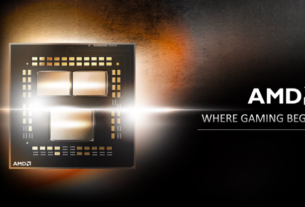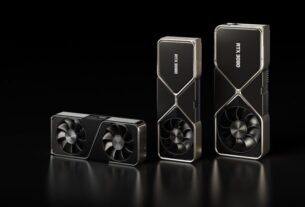
One of the most popular statistical sources for AMD fans, german retailer Mindfactory.de has reported RMA statistics and it turns out they saw a higher failure rate for AMD Radeon 5000 series GPUs than NVIDIA Turing parts. This is a very large data set of roughly 44,000 AMD GPUs and 76,000 NVIDIA GPUs. It is very likely statistically significant although you should always be mindful when extrapolating trends from a single data source (that applied before and it applies now as well).
AMD Radeon 5000 series GPUs have a higher failure rate than NVIDIA GPUs, most failures happened under the Powercolor brand
Interestingly, most of AMD’s bad luck seems to be skewed by PowerColor failures. While for other vendors making AMD RX 5700 GPUs, the failure rate hovers between 2-4% just like NVIDIA, PowerColor breaks from the trendline at a whopping 6% failure rate – which almost no other vendor has. The GPU SKU with the worst failure rate is also a PowerColor based design of the RX 5700 XT.
Here are the failure rate awards:
- GPU SKU with the worst failure rate: Red Devil Power Color AMD RX 5700 with a 13.18% failure rate.
- GPU series with the worst failure rate: RTX 2080 Tis with a 5% failure rate.
- GPU IHV with the overall worst failure rate: AMD Radeon with a 3.29% failure rate.
Failure rates are also a partial indicator of the yield issues associated with a particular GPU both in terms of the die and in terms of packaging/assembly. Notice for example that the (relatively) tiny 1660 Ti has almost no RMAs to speak of whales the uber large RTX 2080 Ti has the largest failure rate at 5%. That said, the only anomaly in this data appears to be PowerColor which is showing a lot of failure without any of the tradeoffs (more powerful GPU etc). It is also the biggest reason why AMD Radeon GPUs have a higher failure rate on an overall basis.
The data implies a 36.6% market share for AMD GPUs and a 63.3% share for NVIDIA parts. Keep in mind that the difference in the volume has no leaning on the statistical validity of the data as they are close enough to be valied and at 40000+ samples you see massively diminishing returns in terms of significance anyways (a student’s t test is validated at 32 samples for example). Mindfactory data has always proven to be extremely controversial and this looks like its going to be no different.
Failure rate by GPU series
| GPU Series | Failure Rate (RMA %) |
|---|---|
| AMD RX 5700XT | 4 |
| AMD RX 5700X | 4 |
| AMD RX 5600 XT | 2 |
| AMD RX 5600 | 1 |
| NVIDIA RTX 2080 Ti | 5 |
| NVIDIA RTX 2080 SUPER | 1 |
| NVIDIA RTX 2080 | 4 |
| NVIDIA RTX 2070 SUPER | 1 |
| NVIDIA RTX 2070 | 3 |
| NVIDIA RTX 2060 SUPER | 2 |
| NVIDIA RTX 2060 | 2 |
| NVIDIA RTX 1660 Ti | 0.01 |
AMD Radeon 5000 Series Failure Rate (RMA %)
| Vendor | GPUs Shipped | RMA # | RMA % |
|---|---|---|---|
| ASRock | 2520 | 48 | 2 |
| Gigabyte | 5990 | 176 | 3 |
| MSI | 7280 | 145 | 2 |
| PowerColor | 11870 | 663 | 6 |
| Sapphire | 13700 | 321 | 2 |
| XFX | 2740 | 98 | 4 |
| Total: | 44100 | 1452 | 3 |
NVIDIA Turing Failure Rate (RMA %)
| Vendor | GPUs Shipped | RMA # | RMA % |
|---|---|---|---|
| Gainward | 4050 | 107 | 3 |
| Gigabyte | 16870 | 349 | 2 |
| KFA2 | 20040 | 374 | 2 |
| MSI | 28680 | 570 | 2 |
| Palit | 4010 | 166 | 4 |
| PNY | 460 | 8 | 2 |
| Zotac | 2170 | 34 | 2 |
| Total: | 76280 | 1607 | 2 |



